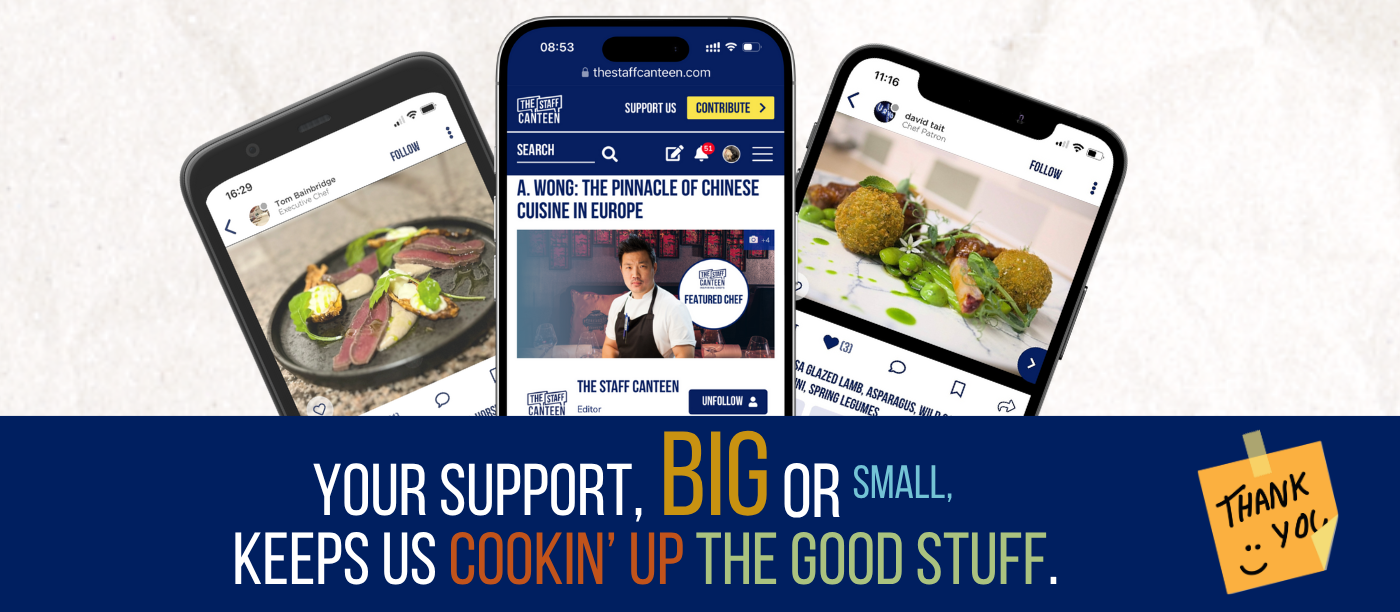Built by Chefs. Powered by You.
For 17 years, The Staff Canteen has been the meeting place for chefs and hospitality professionals—your stories, your skills, your space.
Every recipe, every video, every news update exists because this community makes it possible.
We’ll never hide content behind a paywall, but we need your help to keep it free.
If The Staff Canteen has inspired you, informed you, or simply made you smile, chip in £3—less than a coffee—to keep this space thriving.
Together, we keep the industry connected. Together, we move forward.


 Quinces are an ancient fruit. Originating from Iran and the Caucuses, it was already prolific in Europe by the Roman times - it was even thought that quinces were cultivated before apples. England first recorded the quince in 1275, when Edward I planted some at the Tower of London.
It’s strange that even though that was over 700 years ago, we still feel they are an exotic fruit. Now most British quinces are imported, and Turkey still produces over one quarter of the world's total quinces.
A quince looks like the cross between a pear and a lumpy apple - squat, with a golden yellow skin. However in terms of taste and texture though, it's quite different. The flesh is pappy and astringent. The outer skin is rough and woolly.
Quinces are an ancient fruit. Originating from Iran and the Caucuses, it was already prolific in Europe by the Roman times - it was even thought that quinces were cultivated before apples. England first recorded the quince in 1275, when Edward I planted some at the Tower of London.
It’s strange that even though that was over 700 years ago, we still feel they are an exotic fruit. Now most British quinces are imported, and Turkey still produces over one quarter of the world's total quinces.
A quince looks like the cross between a pear and a lumpy apple - squat, with a golden yellow skin. However in terms of taste and texture though, it's quite different. The flesh is pappy and astringent. The outer skin is rough and woolly.














